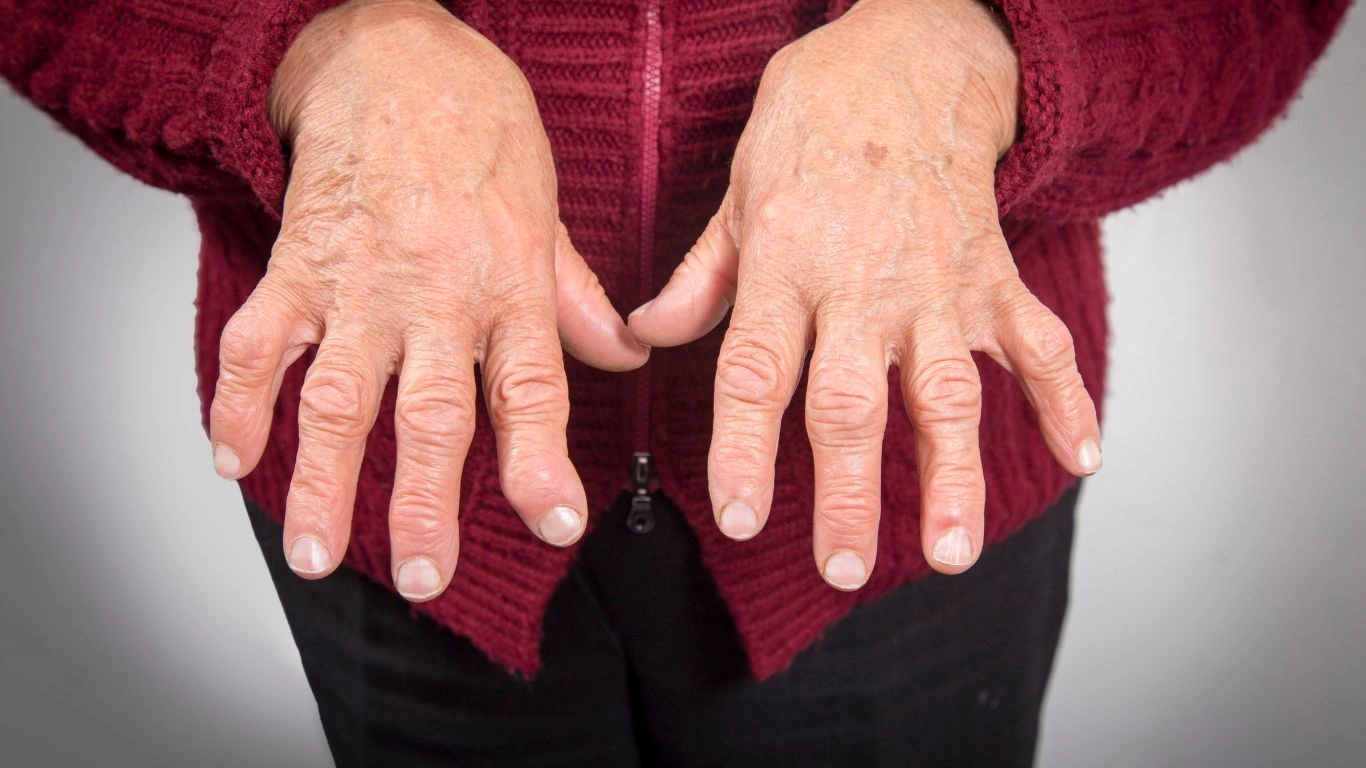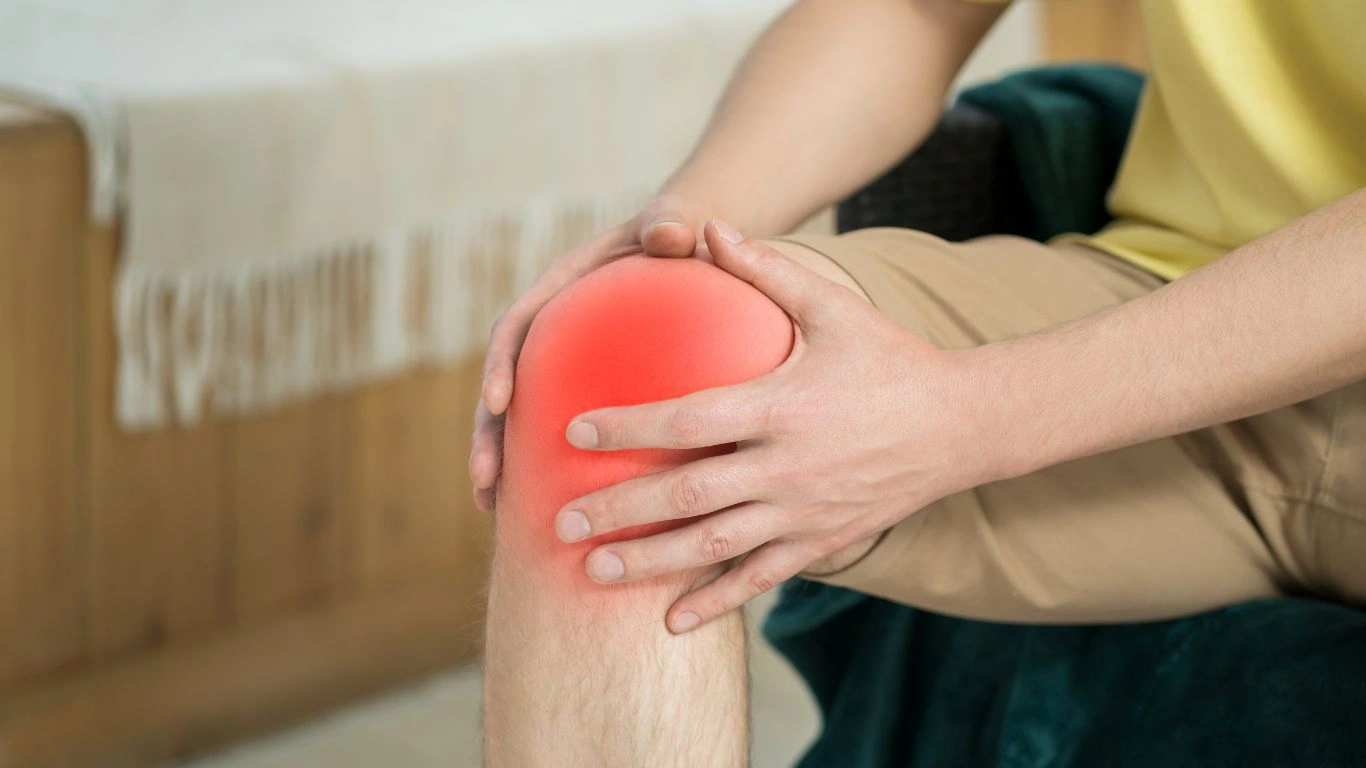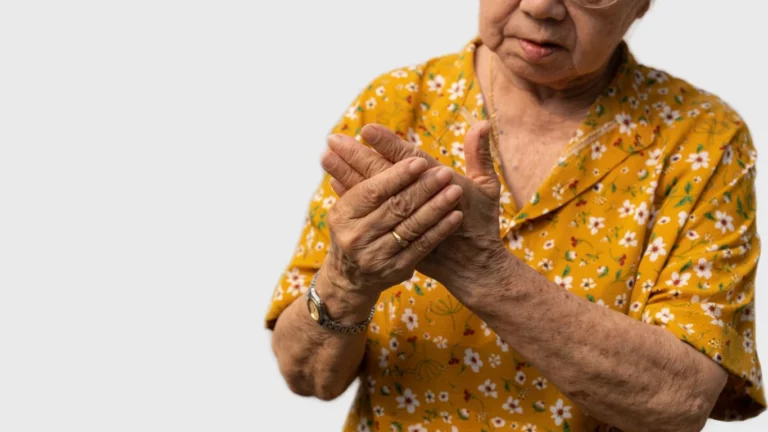Effective Rheumatoid Arthritis Holistic Treatment That Works Wonders
Living with rheumatoid arthritis (RA) can feel like a daily battle. As someone who’s spent years working in the rheumatology field as a Nurse Practitioner, I’ve seen firsthand the physical, emotional, and social toll this disease can take on individuals. But over time, I’ve also witnessed something equally powerful: the transformative impact of holistic treatment approaches in managing RA. While traditional medications are essential in controlling the symptoms of RA, they don’t always address the whole person. A truly integrated approach that combines conventional medicine with natural and lifestyle-based therapies can provide profound relief. In this blog post, I’ll walk you through some of the most effective holistic treatment approaches for rheumatoid arthritis that I’ve found to truly make a difference.
Understanding Rheumatoid Arthritis: A Quick Overview
Before diving into the holistic treatments, let’s quickly recap what rheumatoid arthritis is. RA is an autoimmune disorder where the body’s immune system attacks its own joints, leading to inflammation, pain, and sometimes irreversible damage. It’s a chronic condition that primarily affects joints, but it can also impact other areas like the lungs, heart, and eyes. Unlike osteoarthritis, which is caused by wear and tear on the joints, RA is a systemic disease that can cause severe flare-ups and periods of remission.

Living with RA often means balancing between pain management, flare-ups, and the constant search for relief. That’s where holistic approaches come in. They focus on addressing not only the symptoms but the root causes of inflammation and improving overall well-being.
Holistic Approaches to Managing Rheumatoid Arthritis
Why Holistic Treatments Matter
So, why even consider holistic treatments for rheumatoid arthritis in the first place? While medications are crucial for controlling the disease, they don’t always address the underlying inflammation or the overall health of the patient. Moreover, long-term use of pharmaceutical drugs can bring side effects—something many people living with RA are all too familiar with. Holistic treatments, on the other hand, emphasize lifestyle changes, natural therapies, and mental well-being to complement medical treatments.

My experience with patients has shown me that incorporating these natural approaches alongside conventional therapies can significantly enhance their quality of life. Some of the most impactful holistic treatments include diet, exercise, stress management, and alternative therapies like acupuncture or massage.
1. Nutrition and Anti-Inflammatory Diets
Nutrition is one of the pillars of any holistic approach to managing rheumatoid arthritis. I’ve worked with many patients who have seen improvements in their symptoms simply by tweaking their diet. Research has shown that certain foods can either trigger or reduce inflammation in the body. A diet rich in anti-inflammatory foods is essential for anyone with RA.
- Omega-3 fatty acids: Found in fish like salmon and sardines, omega-3s have been shown to reduce inflammation. If you’re vegetarian or vegan, consider plant-based sources like flaxseeds, chia seeds, and walnuts.
- Antioxidant-rich foods: Berries, leafy greens, and brightly colored vegetables are packed with antioxidants that fight oxidative stress, a factor that exacerbates inflammation.
- Turmeric and ginger: These spices have natural anti-inflammatory properties that may help reduce RA symptoms. Adding them to your meals or having them as tea is an easy way to incorporate them into your diet.
In contrast, some foods can trigger or worsen inflammation. It’s best to avoid processed foods, excessive sugar, and trans fats. Cutting back on red meat and dairy can also help, as some people with RA are sensitive to these foods.
2. Regular Exercise: The Power of Movement
While it might seem counterintuitive to move when your joints are swollen and painful, regular physical activity is one of the most effective ways to manage rheumatoid arthritis. Exercise helps improve joint flexibility, strengthens muscles around the joints, and reduces inflammation. It also boosts your mood and can help with fatigue, which is often a concern for people with RA.

In my practice, I’ve seen people benefit from gentle exercises like swimming, walking, or yoga. These activities are low-impact, so they don’t stress the joints, and they help maintain overall mobility. Strengthening exercises for the core and legs are also critical, as they support the body and take pressure off the affected joints.
Even though the thought of exercising with RA can seem daunting, I always encourage my patients to start small and gradually increase the intensity. Doing so helps build confidence and makes it easier to stick with a regular routine.
3. Stress Management: The Mind-Body Connection
It’s well-established that stress can trigger RA flare-ups. The body’s response to stress involves the release of cortisol, which can contribute to inflammation and pain. This is why stress management is a critical aspect of a holistic RA treatment plan. I’ve seen how stress reduction can significantly improve quality of life for RA patients.
Methods like mindfulness meditation, deep breathing exercises, or even progressive muscle relaxation can help regulate the body’s stress response. I also recommend spending time outdoors, practicing gratitude, and connecting with loved ones, as these activities have been shown to reduce stress levels.
Additionally, therapies like acupuncture or aromatherapy can be helpful in managing stress. Both of these methods focus on relaxing the mind and promoting balance in the body, which can have a positive effect on inflammation and pain management.
4. Alternative Therapies: Acupuncture, Massage, and More
Alternative therapies have long been used to complement conventional medicine in managing chronic diseases like RA. I’ve had patients tell me that treatments such as acupuncture or therapeutic massage have provided significant relief from pain and inflammation.
Acupuncture, in particular, targets specific points on the body to stimulate healing and promote energy flow. Studies suggest that acupuncture may help reduce RA symptoms by releasing endorphins, which are natural painkillers, and by improving circulation.
Massage therapy also provides relief by improving blood flow and relaxing the muscles around the joints. It can also help reduce the stiffness that often comes with RA. In my experience, patients who combine massage therapy with their medical treatment often report feeling more relaxed and in control of their symptoms.
Of course, these treatments should be considered as complementary to traditional medical care, and it’s essential to consult with your healthcare provider before adding any new therapies to your routine.
Supplements and Natural Remedies for RA: A Closer Look
When it comes to managing rheumatoid arthritis holistically, many patients ask me about supplements. Can they really make a difference? From my experience, the answer is yes—but with a few caveats. Supplements aren’t a substitute for prescribed medications, but they can certainly complement your treatment plan and help address some of the underlying causes of inflammation and discomfort. The key is to approach them with the right knowledge and to consult with your healthcare provider before adding anything new to your regimen.
Popular Supplements for RA Relief
Let’s talk about some of the most commonly recommended supplements for people with RA. I’ve seen these make a significant difference for many of my patients, and I always suggest a tailored approach based on the individual’s needs.
- Fish Oil (Omega-3 fatty acids): Omega-3s have long been praised for their ability to reduce inflammation. The anti-inflammatory properties of fish oil can help alleviate joint stiffness and pain. For those who don’t consume fish, high-quality fish oil supplements are a great alternative. In my practice, I’ve had patients report fewer flare-ups and improved mobility after consistently taking omega-3s.
- Turmeric (Curcumin): The active compound in turmeric, curcumin, has powerful anti-inflammatory effects. It’s not just a spice you toss into curry; it can be a game-changer when it comes to RA. I’ve recommended turmeric supplements to many patients, and they’ve experienced noticeable improvements, especially when combined with black pepper, which enhances curcumin’s absorption.
- Vitamin D: Low vitamin D levels have been linked to an increased risk of autoimmune diseases, including RA. Supplementing with vitamin D can help support the immune system and potentially reduce RA symptoms. I often suggest getting a blood test to check vitamin D levels, as too little can contribute to inflammation and pain.
- Ginger: Like turmeric, ginger has natural anti-inflammatory properties. Whether consumed as a supplement, tea, or in its fresh form, ginger can help reduce joint swelling and discomfort. I recommend adding ginger to your daily routine if you’re looking for an easy, natural way to complement your treatment plan.
- Glucosamine and Chondroitin: These supplements are often used to support joint health and can help manage cartilage damage. While they may not be a cure-all, many of my patients have reported less pain and better joint function when incorporating these into their routine.
Of course, it’s essential to be cautious with supplements. Not all products are created equal, and the quality can vary greatly. It’s a good idea to choose reputable brands that have been third-party tested for purity and potency. And remember, supplements are meant to be used alongside, not instead of, your prescribed medication.
Mind-Body Connection: The Role of Mental Health in RA
We all know that rheumatoid arthritis is physically demanding, but what many people don’t realize is just how much it can affect mental health. In fact, a growing body of research shows that people with RA are at higher risk for anxiety, depression, and other emotional challenges. Over the years, I’ve seen how powerful the mind-body connection is when it comes to managing chronic illness like RA.
How Mental Health Affects RA
The emotional toll of RA can lead to a vicious cycle. Stress, depression, and anxiety can exacerbate inflammation and increase pain sensitivity, which in turn can make RA symptoms worse. This is why mental health should be a key focus in any holistic approach to managing rheumatoid arthritis.

In my clinical practice, I’ve seen that when patients take steps to improve their mental well-being, they often experience significant physical relief. Addressing emotional health through therapies like counseling, cognitive behavioral therapy (CBT), or even just talking openly about the struggles they face can have profound effects on RA symptom management.
Strategies for Managing Stress and Boosting Mental Health
One of the simplest yet most effective ways to manage stress is through mindfulness practices. Whether it’s meditation, deep breathing, or simple relaxation techniques, mindfulness helps you stay grounded in the present moment, reducing the impact of stress on the body. I encourage my patients to dedicate at least 10–15 minutes a day to mindfulness exercises. It’s amazing what a small practice can do for your overall well-being.
Additionally, finding activities that bring joy and purpose can make a huge difference. I’ve seen patients thrive by reconnecting with hobbies they love, whether that’s painting, gardening, or reading. Even small moments of joy can help counterbalance the challenges of living with RA.
Support Groups: Connecting with Others
Sometimes, the best way to handle the emotional side of RA is through connection. Support groups, either in-person or online, can provide a sense of community and understanding that is invaluable. I’ve encouraged many of my patients to join these groups, and they’ve often found comfort in hearing others’ experiences. It’s easy to feel isolated when you’re living with a chronic condition, but knowing that others are going through similar challenges can be empowering.
One of the key benefits of support groups is the exchange of information. People share what’s worked for them in terms of managing symptoms, whether it’s a specific exercise routine, diet changes, or new medications. It’s a place to learn, vent, and simply feel heard, which is often the best medicine for a troubled mind.
Sleep and Rest: The Unsung Heroes of RA Treatment
When you’re living with rheumatoid arthritis, rest isn’t just a luxury—it’s a critical part of the healing process. RA symptoms like joint pain and stiffness can make it difficult to sleep, and poor sleep can, in turn, exacerbate inflammation. This is why managing your sleep patterns is an essential part of a holistic approach to treating RA. I’ve seen many patients whose symptoms improved simply by improving their sleep hygiene.
Improving Sleep with RA
If you’re struggling to get a good night’s sleep due to RA, I always recommend setting a consistent bedtime routine. Try to go to bed and wake up at the same time each day, and avoid stimulating activities (like screen time) before bed. Using pillows or braces to support your joints while you sleep can also help alleviate pressure on painful areas and make it easier to rest.

Additionally, making your bedroom environment as comfortable as possible is crucial. A cool, dark, and quiet space can make a significant difference in the quality of your sleep. I always tell my patients that sleep isn’t just about quantity; it’s about quality, too.
The Role of Naps and Rest Periods
Don’t underestimate the power of short naps and planned rest periods throughout the day. While it’s important to stay active and exercise, your body also needs time to recover. I encourage my patients to listen to their bodies and rest when needed. Overdoing it can trigger flare-ups, so pacing yourself throughout the day can go a long way in preventing excessive fatigue and discomfort.

Rheumatoid Arthritis and Holistic Treatments: Real-Life Success Stories
One of the most rewarding aspects of working in rheumatology is hearing stories from my patients about how holistic approaches have positively impacted their lives. These success stories are proof that managing rheumatoid arthritis isn’t just about taking medication—it’s about creating a treatment plan that works for the whole person. I’ve witnessed people transform not only their physical health but also their outlook on life by incorporating holistic treatments into their routine. Let me share a couple of stories that stand out to me.
Case 1: Sarah’s Journey with RA and Diet
Sarah, a 42-year-old woman, had been living with RA for several years. Like many, she was heavily reliant on medication to manage her symptoms, but she still struggled with joint pain and fatigue. After our first consultation, I suggested she try incorporating an anti-inflammatory diet into her lifestyle. She was skeptical at first—after all, she had tried various diets before without success. But we worked together to create a meal plan that focused on omega-3 fatty acids, antioxidants, and whole foods while cutting back on processed foods.
Six months later, Sarah reported significant improvements. Her joint swelling had decreased, her energy levels were up, and she was feeling better overall. She was also able to reduce the amount of medication she was taking, which made her feel empowered. I truly believe that Sarah’s commitment to a healthier lifestyle helped her break the cycle of chronic inflammation and improve her quality of life.
Case 2: John’s Story with Exercise and Stress Management
John, a 55-year-old man, had been diagnosed with RA five years ago. He was facing constant flare-ups, especially during stressful periods at work. He also wasn’t getting enough physical activity due to pain and stiffness. During one of our visits, I suggested that he try a combination of gentle exercises and stress management techniques like mindfulness meditation and deep breathing exercises. John was hesitant about exercise because he was afraid it would worsen his symptoms, but I reassured him that low-impact activities could help, not hurt.
After several months of swimming and practicing mindfulness, John began to see drastic improvements. His stress levels had decreased, his flare-ups became less frequent, and he felt more mobile and stronger. John’s success story is a great example of how integrating physical activity and mental well-being practices can truly change the course of RA management. He learned that taking a holistic approach was not only about managing symptoms but about enhancing his overall well-being.
Important Considerations When Using Holistic Treatments
While holistic treatments can offer significant benefits for rheumatoid arthritis, it’s important to approach them thoughtfully. Here are some essential considerations to keep in mind:
1. Always Work with Your Healthcare Provider
As a Nurse Practitioner in rheumatology, I always stress the importance of working closely with your healthcare provider when incorporating holistic treatments into your routine. While natural therapies can be helpful, they should never replace conventional medical treatments without guidance. Your provider can help you understand how holistic treatments interact with your current medications and ensure that you’re making safe and effective choices. Always keep an open line of communication about what treatments you’re trying.
2. Be Patient and Consistent
One thing I always tell my patients is that holistic treatments take time. These approaches aren’t quick fixes—they require consistency and patience. Whether it’s sticking to an anti-inflammatory diet or regularly practicing stress-reduction techniques, it’s essential to give these changes time to work. In my experience, patients who stay committed to their holistic treatments are more likely to experience lasting benefits.
3. Listen to Your Body
Your body is your best guide when it comes to holistic treatments. It’s essential to listen to how you feel and adjust your approach as needed. If a particular supplement, exercise routine, or diet change isn’t working for you, don’t be afraid to modify it. Everyone’s journey with rheumatoid arthritis is different, and finding the right balance is key to long-term success.
Additional Resources for Holistic RA Treatment
If you’re looking for more information about holistic approaches to managing rheumatoid arthritis, there are plenty of reputable resources available. Here are a few that I often recommend to my patients:
- Health.com – Offers valuable articles and insights on health and wellness, including natural treatments for RA.
- National Institutes of Health (NIH) – Provides research-backed information about rheumatoid arthritis and emerging treatment options.
- American College of Rheumatology (ACR) – A trusted source for understanding the latest in RA treatments and patient care guidelines.
Disclaimer
While holistic treatments can be incredibly beneficial in managing rheumatoid arthritis, they are not a substitute for professional medical care. Always consult with your healthcare provider before making any changes to your treatment plan. The information shared in this blog post is based on my professional experience as a Nurse Practitioner in the rheumatology field, but individual results may vary. It is important to find a comprehensive treatment plan that works for you in consultation with your doctor or specialist.

Tarra Nugroho is a dedicated Nurse Practitioner with a strong foundation in family and preventive care. She brings both compassion and clinical expertise to her practice, focusing on patient-centered care and health education. As a contributor to Healthusias.com, Tarra translates medical knowledge into clear, empowering articles on topics like women’s health, chronic disease management, and lifestyle medicine. Her mission is simple: help people feel seen, heard, and informed—both in the clinic and through the content she creates. When she’s not caring for patients, Tarra enjoys weekend hikes, plant-based cooking, and curling up with a good health podcast.







